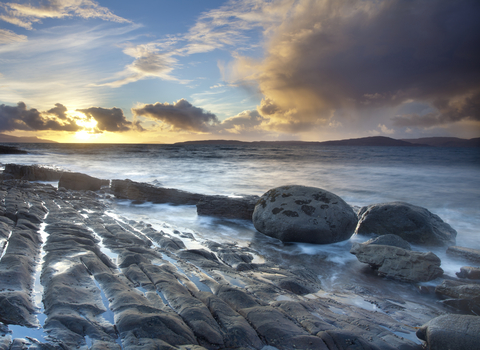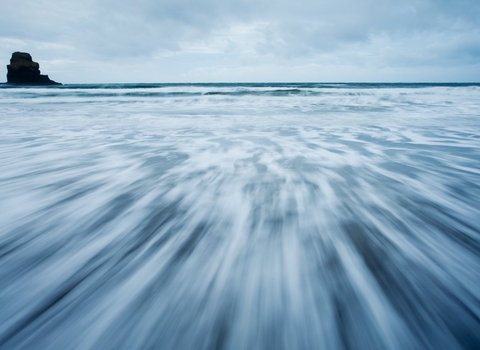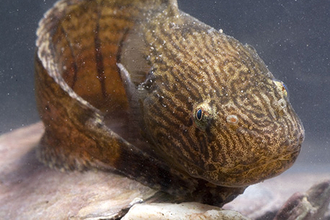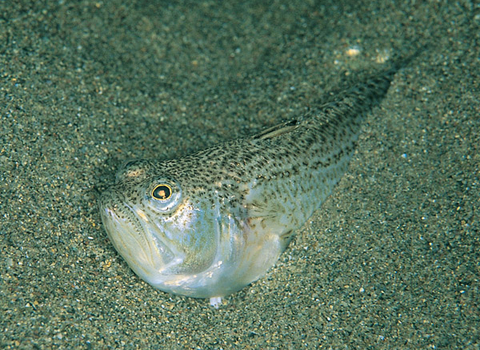
Lesser weever by Paul Naylor
Lesser weever fish
One of the only venomous fish to be found in British waters, the lesser weever fish is certainly one to watch out for!
Scientific name
Echiichthys viperaWhen to see
June - October.Species information
Statistics
Up to 15cm long.Conservation status
Common.
Habitats
About
There are two species of weever fish, lesser and great. And they are some of the only venomous fish in UK waters. They spend most of their lives buried in the sand, but when disturbed, they shoot up their black dorsal fin in defence, injecting a painful venom into unsuspecting victims!How to identify
Upturned, grumpy mouth, with a deep yellowish body tapering down towards the tail. Eyes sit on top of the head as the rest of the body is usually buried in the sand. Black dorsal fin contains the venom, along with spines on gill covers.Distribution
Found all around Britain, most common in south and south west.Did you know?
If you are stung by a weever fish, then place the body part in as hot water as you can bear, as quickly as possible. After 15 minutes or so, the pain should ease.How people can help
To avoid being stung, you should always wear beach shoes when paddling in sandy waters! Always follow the Seashore Code when rockpooling, be careful to leave everything as you found it - replace any rocks you turn over, put back any crabs or fish and ensure not to scrape anything off its rocky home.The Wildlife Trusts are working with fishermen, researchers, politicians and local people towards a vision of 'Living Seas', where marine wildlife thrives. Do your bit for our Living Seas by supporting your local Wildlife Trust or checking out our Action Pages.
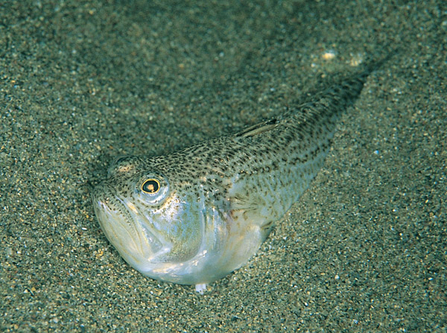
Lesser weever by Paul Naylor

